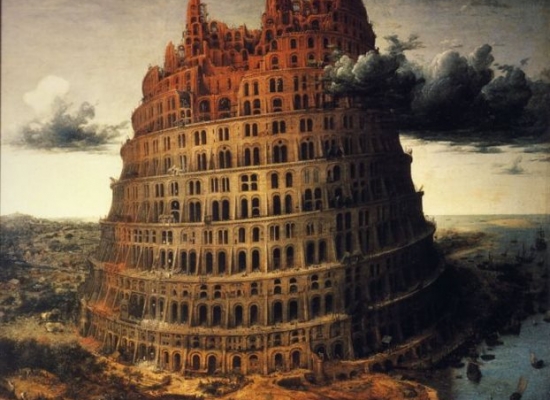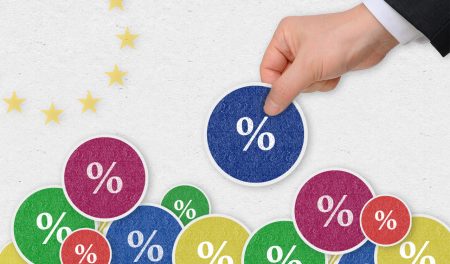The new world that emerged from the collapse of the Soviet Union and the satellite countries of the so-called “real socialism” was marked by the liberalization of trade, the markets and in general the movement of capital and the development of the so-called globalization.
The aforementioned huge changes coincided with the rapid development of telecommunications and new technologies, which affected the developments of the financial sector and stock market transactions in general.
In the years that followed 1989 the world entered the phase of globalization, which highlighted opportunities and capabilities worldwide and at the same time created unique situations of interdependence and interaction between almost all countries. This of course was accompanied by interventions, wars and conflicts, which over time rejuvenated old conflicts and stirred up religious and nationalist hatred.
Then, in 2001 we had the attack against the Twin Towers, followed by the intervention in Afghanistan and the second invasion in Iraq.
In the meantime, the world was living the madness of international speculation and the financial bubble, which – as demonstrated by the crisis in 2008 – was unprecedented.
Those closely following the international financial affairs know that the financial crisis of 2008 destroyed the ability of relatively free markets to overthrow the hegemony of state-monopoly coalitions. This ability began to emerge with the popularization of cheap personal computers and the decline of the cost of telecommunications in the mid-1980s.
The primary causes of the crisis in 2009 are located in the inability – refusal (as Kriton Zoakos says, a market philosopher who is not known to the Greek public) of the financial planners of China, Japan and the Eurozone-Germany to invest their commercial surpluses in strengthening financially their households and thus supporting their domestic consumer markets.
Those three economic powers invested their domestic trade surpluses in buying American titles – the Chinese and Japanese bought and continue to buy US Treasury bills, while the Europeans prefer American stocks, making direct investments by creating production units in the USA, over treasury bills.
The inflow of foreign capital in the USA over the past three decades was far greater than the American trade deficit. From 1984 to 2014 the inflow of capital amounted to 30 trillion dollars, while the accumulated trade deficits during the same period were about 10 trillion dollars.
In fact, foreign demand for American stock is three times greater than the American trade deficit.
In other words, the total savings of the three greatest exporters in the world were channeled and continue to be channeled to the USA, with absolutely beneficial consequences for the sole super power.
The excessive inflow of capital will force interest rates in America down to a point where its does not make sense for American households to save beyond a point and worst of all, it results in stagnation for the domestic markets of the great exporters.
The big question is why do the great exporters, specifically China, Japan and Germany, act this way? The reasons are clearly political. The political elites in China, Japan and Germany are associated and dependent on the international credit system, they cannot go one step further from where the major international banks tell them.
The further opening, support and prosperity of their domestic markets in impossible without the redistribution of income, wealth-creating resources and political influences.
Without the rise of new political forces to represent the interests of the middle classes against the state-monopolistic financial establishment, the prosperity of their domestic markets is impossible.
Before the crisis in 2008, in the USA there were serious chances of the free market forces prevailing over the colossal financial institutions, however the crisis allowed the opportunity to those financial institutions to fully entrench their domination over the American stat’s administration through extortion and fearmongering.
The Obama administration is essentially acting as a front for Goldman Sachs and their allies. Gradually, the influence of the international financial system passed on to the main export forces and of course Europe, which these days is totally blocked.
During the crisis Greece faced time and again the walls that were put up by the most authentic representatives of the relation of dependency between politics, the International Monetary Fund, the major international banks and the related credit rating agencies.
Schäuble, Draghi, Lagarde, Thomsen, the major international banks and the credit rating agencies were systemically against the crisis in its various phases. They have also affected and continue to affect developments, they will not allow the disruption of relations and ties, nor any doubt for the dominant theological belief regarding the markets and the economy.
However the tensions that this relationship brings through the interdependency of countries and societies not just to Greece, but nearly all of Europe, have major consequences.
Germany which has a zero fiscal deficit and a 7% trade surplus could easily implement an expansive fiscal policy, offering prosperity to the German society and recovery to the whole of Europe.
Without any negative effects, only benefits for Germany and the whole of Europe, it could increase its fiscal deficit from 0 to 2% GDP and truly change things.
Instead, the German political elite would rather pay employees in production less, not undertake any public works to improve its infrastructure, and not benefit investments in production. Instead it restricts the welfare state, not understanding that it escalate tensions in the interior, fueling xenophobia, while the anti-Islamic movement is covering acts of vengeance, while cultivating terrorist violence within.
Worst of all, it does not recognize the interaction and interdependence that this entanglement in international affairs is causing.
Truth be told, so long as the politics do not change and no provisions are made in favor of the people, the modern global Babel will continue to give birth to violent acts and cause major social conflicts.
The Babel of the new world is no longer defensible. It requires a new agreement on mutual respect and human relations.
Antonis Karakousis





